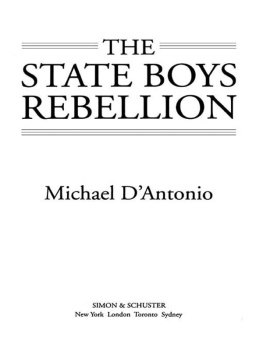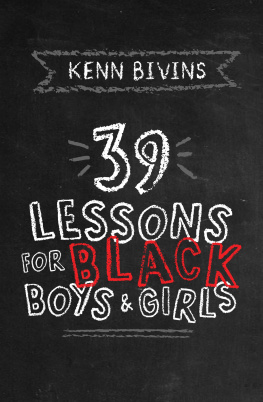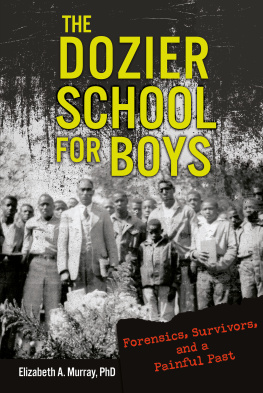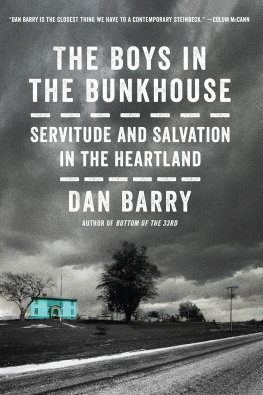Michael DAntonio - The State Boys Rebellion
Here you can read online Michael DAntonio - The State Boys Rebellion full text of the book (entire story) in english for free. Download pdf and epub, get meaning, cover and reviews about this ebook. year: 2007, publisher: Simon & Schuster, genre: Romance novel. Description of the work, (preface) as well as reviews are available. Best literature library LitArk.com created for fans of good reading and offers a wide selection of genres:
Romance novel
Science fiction
Adventure
Detective
Science
History
Home and family
Prose
Art
Politics
Computer
Non-fiction
Religion
Business
Children
Humor
Choose a favorite category and find really read worthwhile books. Enjoy immersion in the world of imagination, feel the emotions of the characters or learn something new for yourself, make an fascinating discovery.
- Book:The State Boys Rebellion
- Author:
- Publisher:Simon & Schuster
- Genre:
- Year:2007
- Rating:4 / 5
- Favourites:Add to favourites
- Your mark:
The State Boys Rebellion: summary, description and annotation
We offer to read an annotation, description, summary or preface (depends on what the author of the book "The State Boys Rebellion" wrote himself). If you haven't found the necessary information about the book — write in the comments, we will try to find it.
A Pulitzer Prize-winning journalist tells the amazing story of how a group of imprisoned boys won their freedom, found justice, and survived one of the darkest and least-known episodes of American history.
In the early twentieth century, United States health officials used IQ tests to single out feebleminded children and force them into institutions where they were denied education, sterilized, drugged, and abused. Under programs that ran into the 1970s, more than 250,000 children were separated from their families, although many of them were merely unwanted orphans, truants, or delinquents.
The State Boys Rebellion conveys the shocking truth about Americas eugenic era through the experiences of a group of boys held at the Fernald State School in Massachusetts starting in the late 1940s. In the tradition of Erin Brockovich, it recounts the boys dramatic struggle to demand their rights and secure their freedom. It also covers their horrifying discovery many years later that they had been fed radioactive oatmeal in Cold War experiments -- and the subsequent legal battle that ultimately won them a multimillion-dollar settlement.
Meticulously researched through school archives, previously sealed papers, and interviews with the surviving State Boys, this deft expos is a powerful reminder of the terrifying consequences of unchecked power as well as an inspiring testament to the strength of the human spirit.
Michael DAntonio: author's other books
Who wrote The State Boys Rebellion? Find out the surname, the name of the author of the book and a list of all author's works by series.











